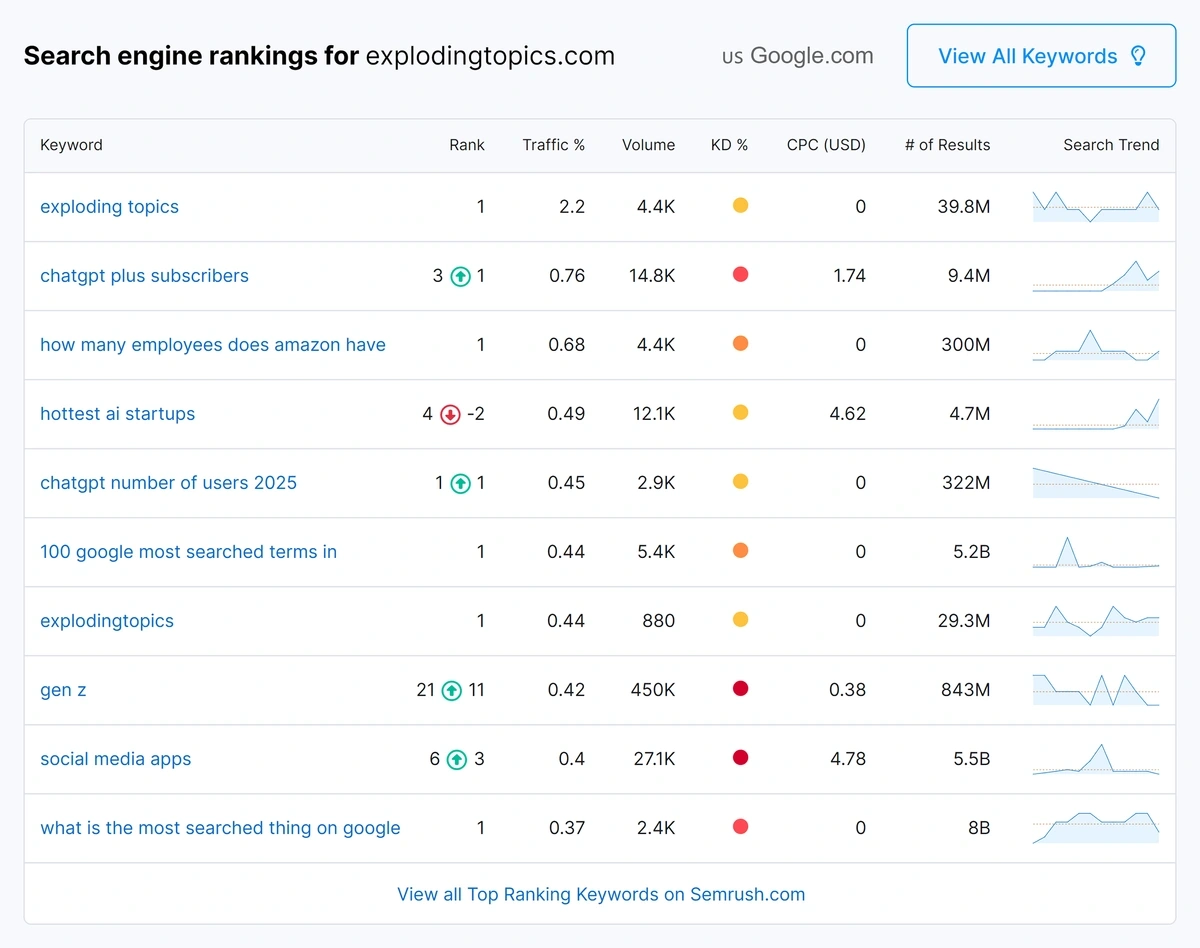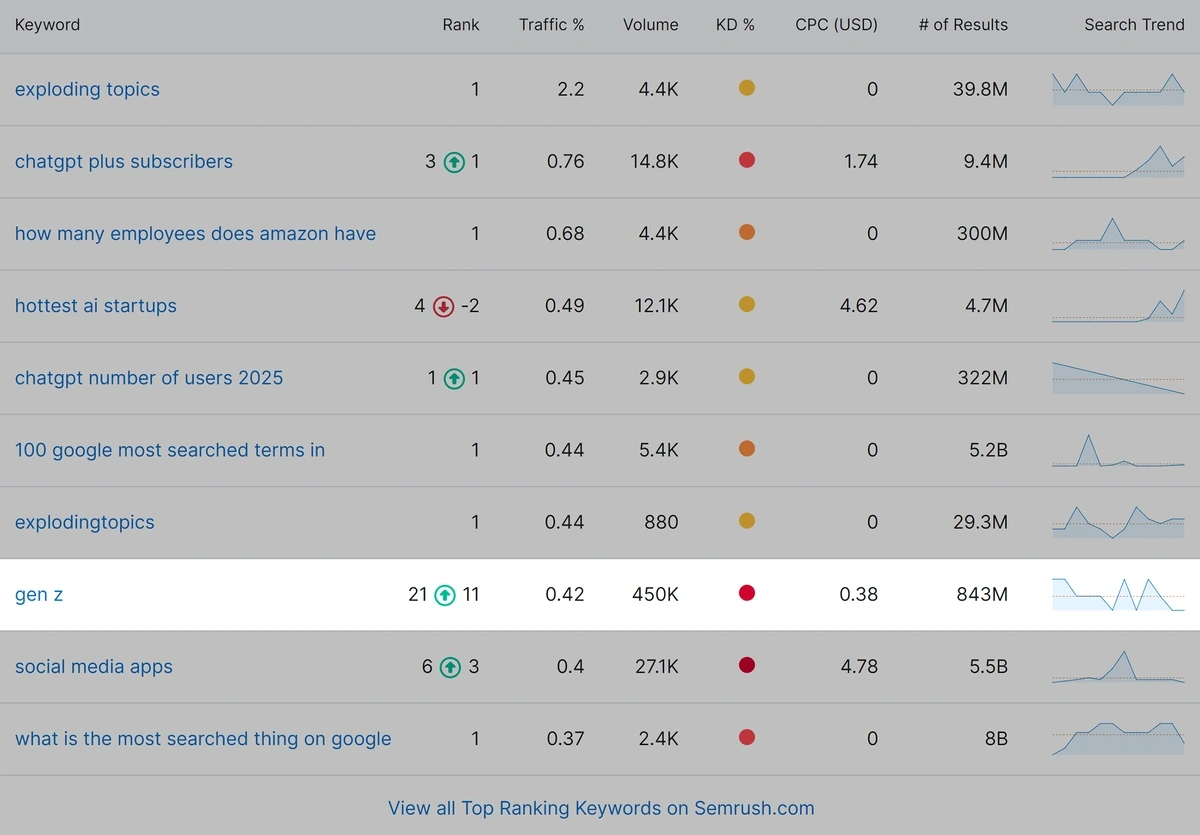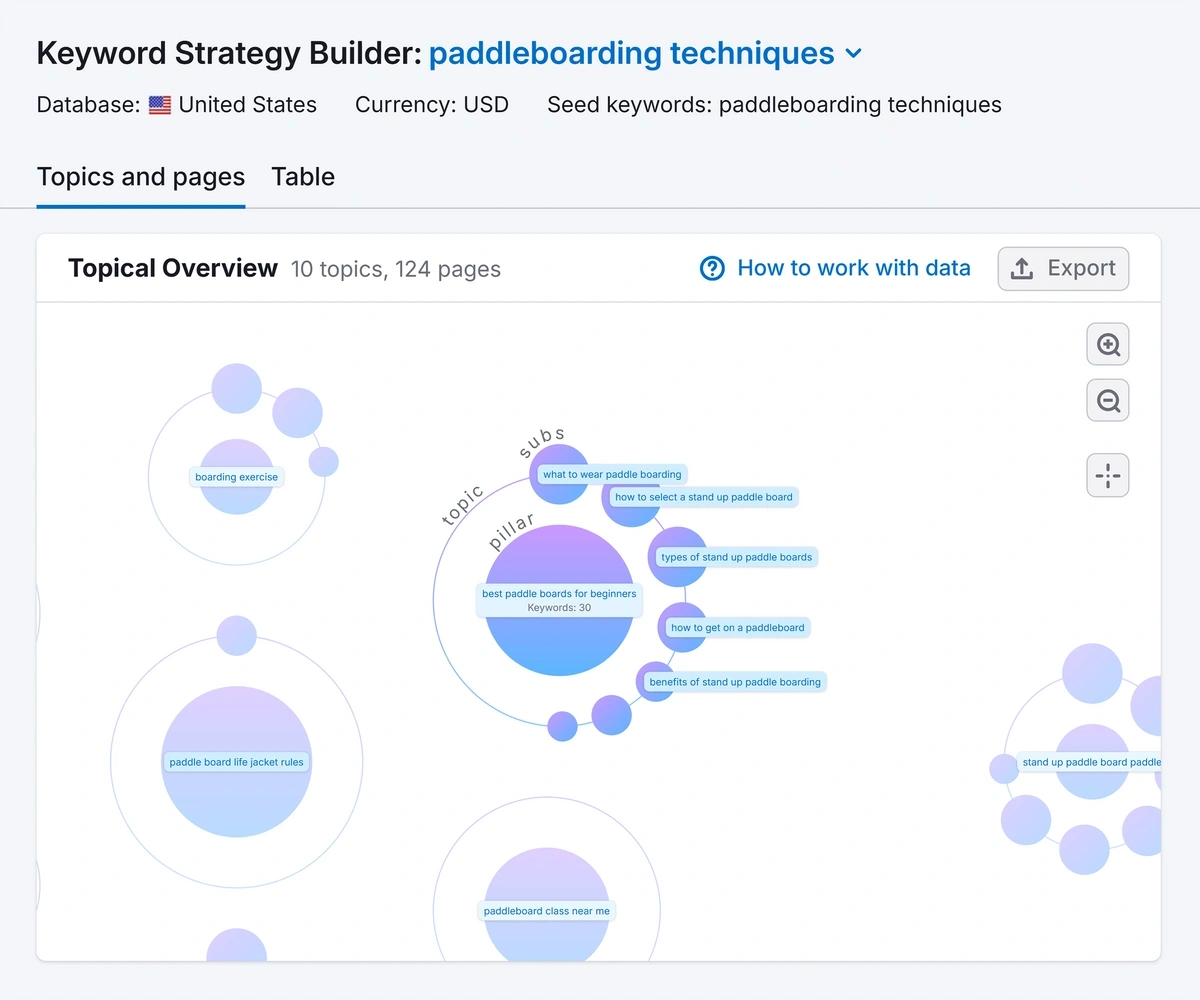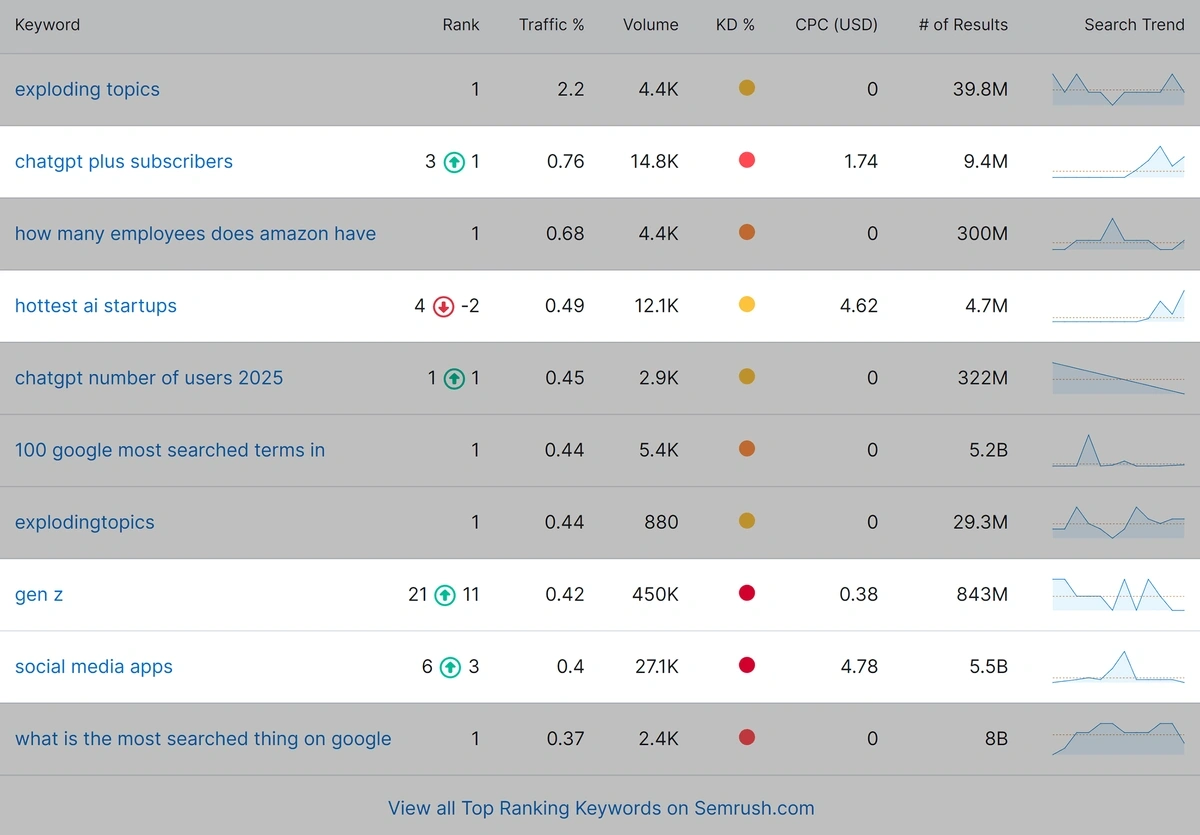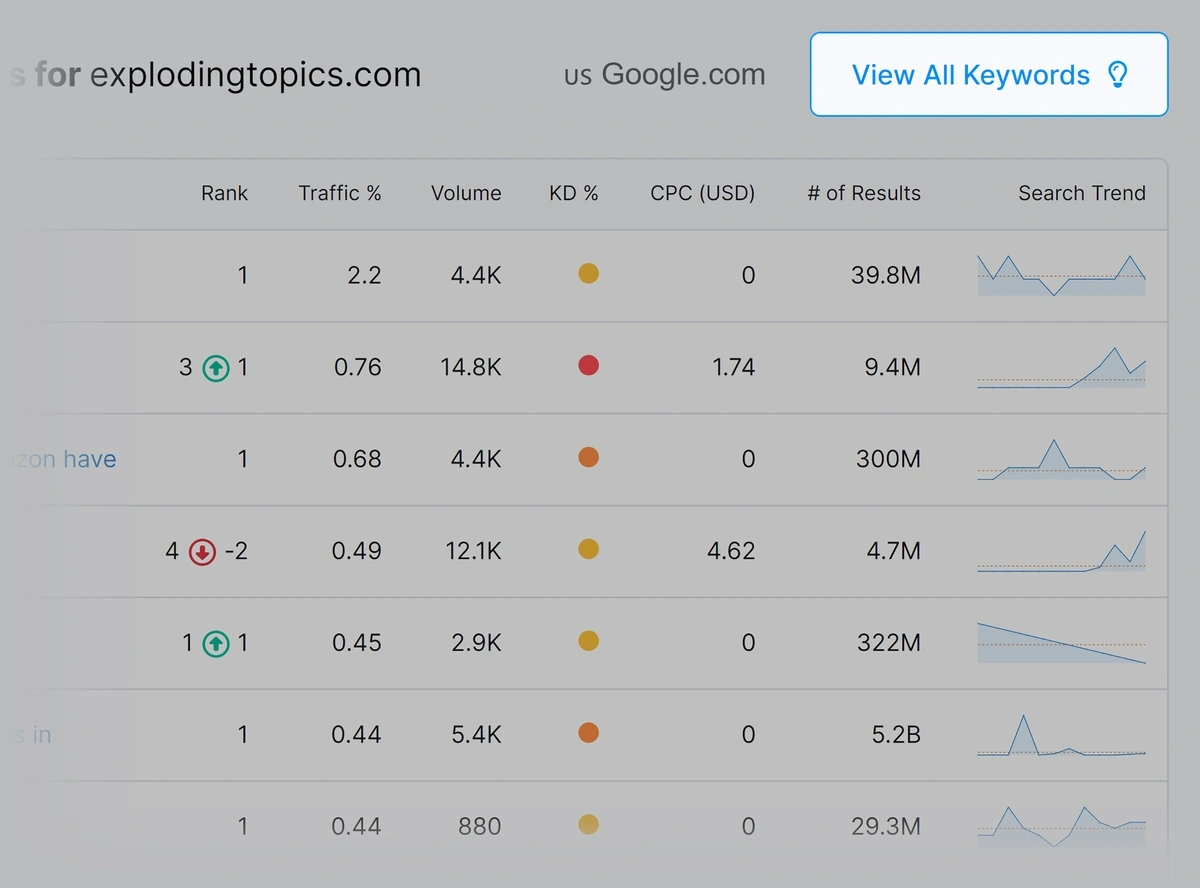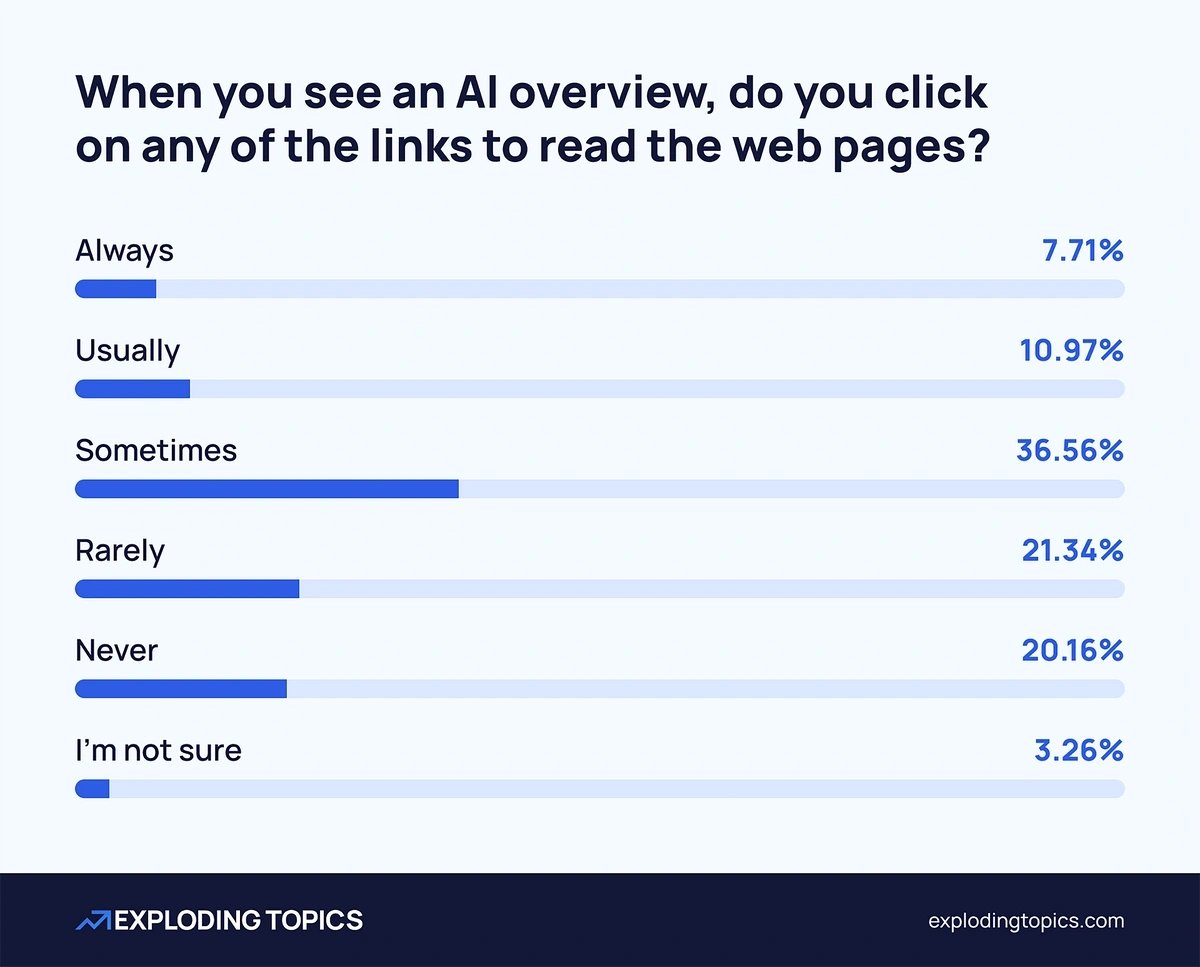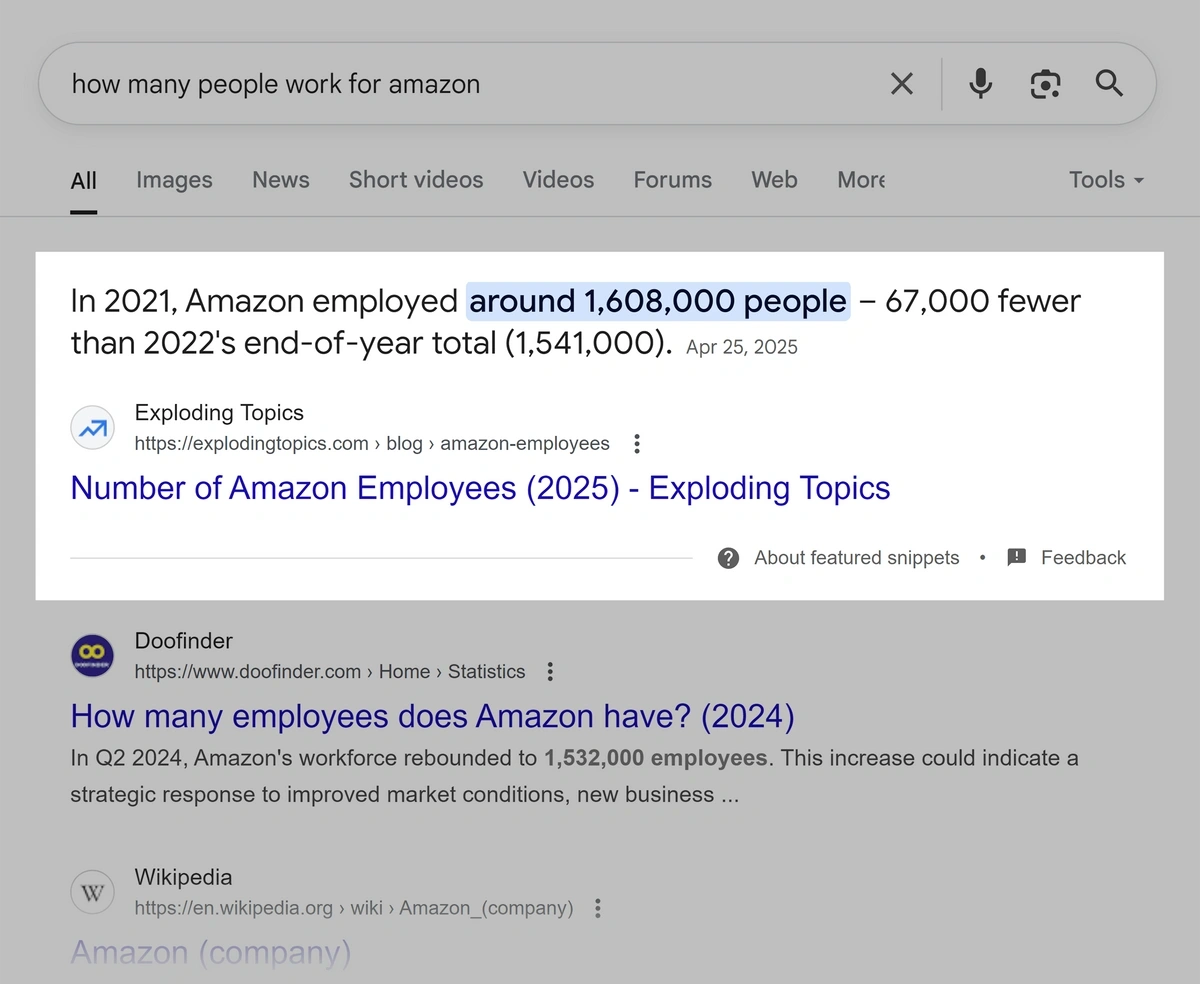Get Advanced Insights on Any Topic
Discover Trends 12+ Months Before Everyone Else
How We Find Trends Before They Take Off
Exploding Topics’ advanced algorithm monitors millions of unstructured data points to spot trends early on.

Keyword Research
Performance Tracking
Competitor Intelligence
Fix Your Site’s SEO Issues in 30 Seconds
Find technical issues blocking search visibility. Get prioritized, actionable fixes in seconds.
Powered by data from
How to Use Rank Tracker to Find Your Best Keywords (Instantly)
Our free website rank tracker reveals the exact keywords your site (or any competitor) already ranks for.
You can see which keywords drive real traffic and where your biggest opportunities lie.
Most website owners struggle with rankings. They create content hoping it will rank, but never discover which keywords are actually working for them so they can iterate.
You might be sitting on ranking goldmines without knowing it, like:
- Pages that rank on page 2 of organic search results for valuable terms
- Content that captures traffic for keywords you never even targeted
- Competitors dominating keywords that you should own
The fastest way to unlock this data is our keyword ranking tool at the top of this page.
How to Use Our Website Rank Tracker
Enter any domain and instantly see the top keywords driving organic traffic.
Click "View all Keywords" for the complete picture of that domain's search presence.
Here's what the results reveal:
Position 11-20 keywords are your biggest opportunities
Keywords that appear on page 2 of the SERP are important for growth.
Google already considers your content relevant, so a few targeted improvements often push these pages to page 1, delivering exponential traffic increases as you rise up the ranks.
If you can’t see any page 2 keywords, click “View all Keywords” and get more data in Semrush.
For more guidance on this, check out our guide to conducting a content audit.
Unexpected rankings can provide easy wins
The moment you run your domain through our rank checker, you'll discover keywords you didn't know you ranked for. This is your roadmap to more organic traffic.
You’ll see content gaps worth expanding and new keyword themes to explore.
Capitalize on this by building a topical cluster around the content that’s ranking.
Our guide to keyword clustering tools shows you how to sort keywords into topical groups.
Search volume is a handy signpost for growth
Traffic potential becomes clear when you see which ranked keywords have significant search volume.
Focus optimization efforts on high-volume terms where you already have visibility.
The tool shows you exactly where to invest your time for maximum impact. Instead of guessing which keywords to target, use our free website rank checker to obtain proven data about what already works.
Competitor keywords give you insights into their strategy
You can also use our website rank checker tool to reverse-engineer your competitors’ content marketing strategy.
Enter any competitor's domain to uncover their organic search rankings. Then click the "View all Keywords" button to see the 50-100 keywords that are most important to them.
This intelligence reveals opportunities they've discovered that you might be missing.
Look for these competitive insights:
- Keyword Gaps: Terms your competitors rank for that you don't. These represent immediate content opportunities, especially if multiple competitors target the same keywords.
- Content Themes: Analyze the keyword categories driving their traffic. Are they succeeding with product comparisons? How-to guides? Industry news? This reveals what content types work well for them, and likely will for you too.
- Ranking Difficulty: When competitors with similar authority score rankings for specific terms, those keywords become more realistic targets for your site.
- Seasonal Patterns: Track competitor keywords over time to spot seasonal opportunities. If they consistently rank for "winter equipment reviews" in Q4, that's your cue to create similar content a few months before the event.
Track Algorithm Impact on Your Rankings
Google’s June 2025 core update resulted in large ranking shifts for some sites. It was interesting to see some recoveries for sites impacted by the Helpful Content Update in September 2023.
However, as with all core updates, individual analysis is important to assess algorithm damage or gains.
Here’s an actionable checklist to help you use our free tool to see what changed on your website:
- Before/After Analysis: Use our website rank checker to analyze your rankings immediately after Google core updates. See which keywords got hit, then compare these results to previous exports to quantify impact.
- Recovery Tracking: Monitor your keyword list weekly during recovery periods. You'll see exactly which terms bounce back and which need content updates for accuracy or freshness.
- Pattern Recognition: Algorithm updates often target specific content types or keyword categories. Get the data from our free tool, then use ChatGPT to analyze lost positions. This will show you exactly what Google penalized.
- Competitive Shifts: Track competitor domains during volatility periods. Sometimes your rankings drop because competitors got boosted, not because your content deteriorated.
- Check SERP features: Sites optimized for AI search features (featured snippets, AI Overviews) may avoid some of the worst impacts. Use your keyword data to identify which terms trigger important SERP features.
Optimize for AI Search and Traditional Rankings
Search evolved beyond traditional Google results. ChatGPT, Perplexity, and Google's AI Overviews now influence traffic patterns. But traditional keyword rankings remain the foundation of organic visibility.
Your keyword ranking data informs both strategies:
Update Your Strategy for Zero Click Searches
Keywords that rank for informational queries often get pulled into AI responses, including AI Overviews. This can lead to a zero click search.
A zero click search is a search where the SERP shows all the information the user needs. There’s no need to visit a website.
According to Semrush research:
- 41.5% of searches lead to a click on an organic search result
- 1.8% of searches resulted in clicks on paid results
- The remainder are zero-click, meaning the search results page marks the end of the user’s journey
And in our own research, we found that less than 19% of searchers “always or usually” click on citations in AI Overviews.
Terms starting with "what is," "how to," or "best" frequently appear in AI search results. Great for visibility, but not so great if you need that traffic to land on your site.
Think about whether this is desirable. Do you want to compete on those terms? Or are you unlikely to get the clicks you need?
Featured Snippet and AIO Opportunities
Keywords where you rank positions 1-5 are prime candidates for featured snippet optimization.
These SERP features capture significant click-throughs from the SERP.
To optimize for featured snippets, try to make content easy to read and easy for LLMs to summarize.
Clarity in writing helps a great deal, as does getting to the point quickly.
Long-Tail Advantage
Conversational search queries (questions, full sentences) are growing as LLMs answer questions grounded in search.
Your ranking data reveals which long-tail variations already work, guiding expansion into more conversational content.
Authority Building
Consistent rankings across related keyword clusters signal topical authority to both traditional, organic search results and answers in AI search engines.
Use your keyword data to identify authority-building opportunities.
Start Your Ranking Analysis Today
Before making a plan for growth, start with understanding what you already rank for. That's where the biggest opportunities reside.
Our website rank checker eliminates the guesswork. Enter your domain above to discover which keywords already work for you. Then use that intelligence to optimize existing content and identify new opportunities.
Stop Guessing, Start Growing 🚀
Use real-time topic data to create content that resonates and brings results.
Exploding Topics is owned by Semrush. Our mission is to provide accurate data and expert insights on emerging trends. Unless otherwise noted, this page’s content was written by either an employee or a paid contractor of Semrush Inc.
Share
Newsletter Signup
By clicking “Subscribe” you agree to Semrush Privacy Policy and consent to Semrush using your contact data for newsletter purposes



